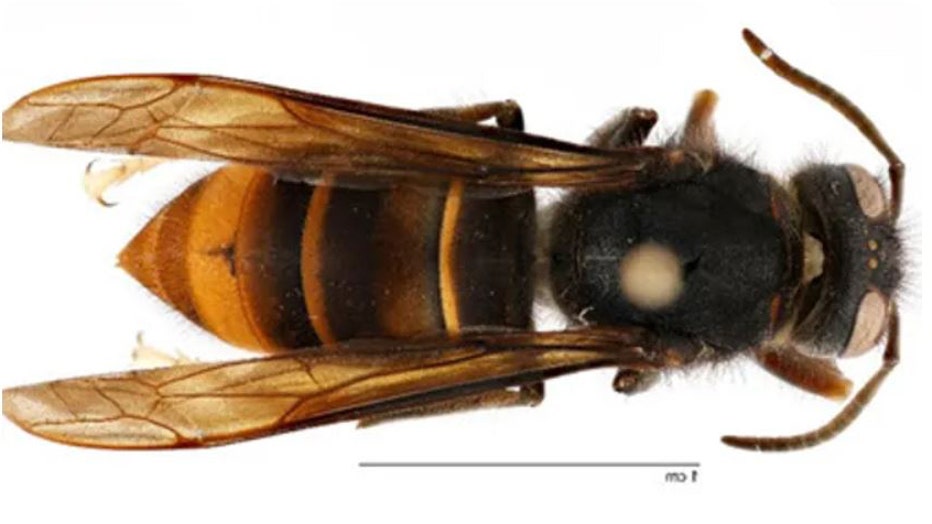Relative of the 'murder hornet' found along East Coast in US for first time
An Asian hornet is seen on a window pane. (Gerard Bottino/SOPA Images/LightRocket via Getty Images / Getty Images)
SAVANNAH, Ga. - An invasive species of hornets has been spotted in the U.S. for the first time and has caused Georgia authorities to issue a warning about the insect.
The Georgia Department of Agriculture reports a living yellow-legged hornet was found near Savannah, and experts are unsure how many more there could be.
If left uneradicated, state officials warn the insect poses a threat to honeybees and other pollinators, which are critical for the agriculture industry.
The yellow-legged hornet is native to Southeast Asia, but agriculture experts warn the population has been spotted in Europe and the Middle East.
GIANT BUG FOUND AT ARKANSAS WALMART IDENTIFIED AS A JURASSIC-ERA INSECT
The insect is much smaller than the northern giant hornet, which earned the nickname of the "murder hornet" due to the way it kills its prey.
The GDA says its legs are typically yellow, and it can construct egg-shaped paper nests in trees.

Yellow-legged hornet (Vespa velutina). (Georgia Department of Agriculture / FOX Weather)
The department said an average nest population is around 6,000, which can be detrimental to any native insect species.
Residents are urged to report sightings to their local extension office or the Department of Agriculture.
The department did not say how they believe the hornet arrived in the Peach State or how long it has been in the Southeast.
NEW INVASIVE MOSQUITO SPECIES SPREADING IN FLORIDA
It is widely thought its cousin, the "murder hornet," arrived in the Pacific Northwest aboard a cargo vessel in 2019.
After an extensive eradication effort, the Washington State Department of Agriculture reported the last sighting of its insect was in 2021.
According to experts at Clemson University, the yellow-legged hornet is not considered to be any more lethal to humans than a sting from a native bee.
Get the latest updates on this story at FOXWeather.com

